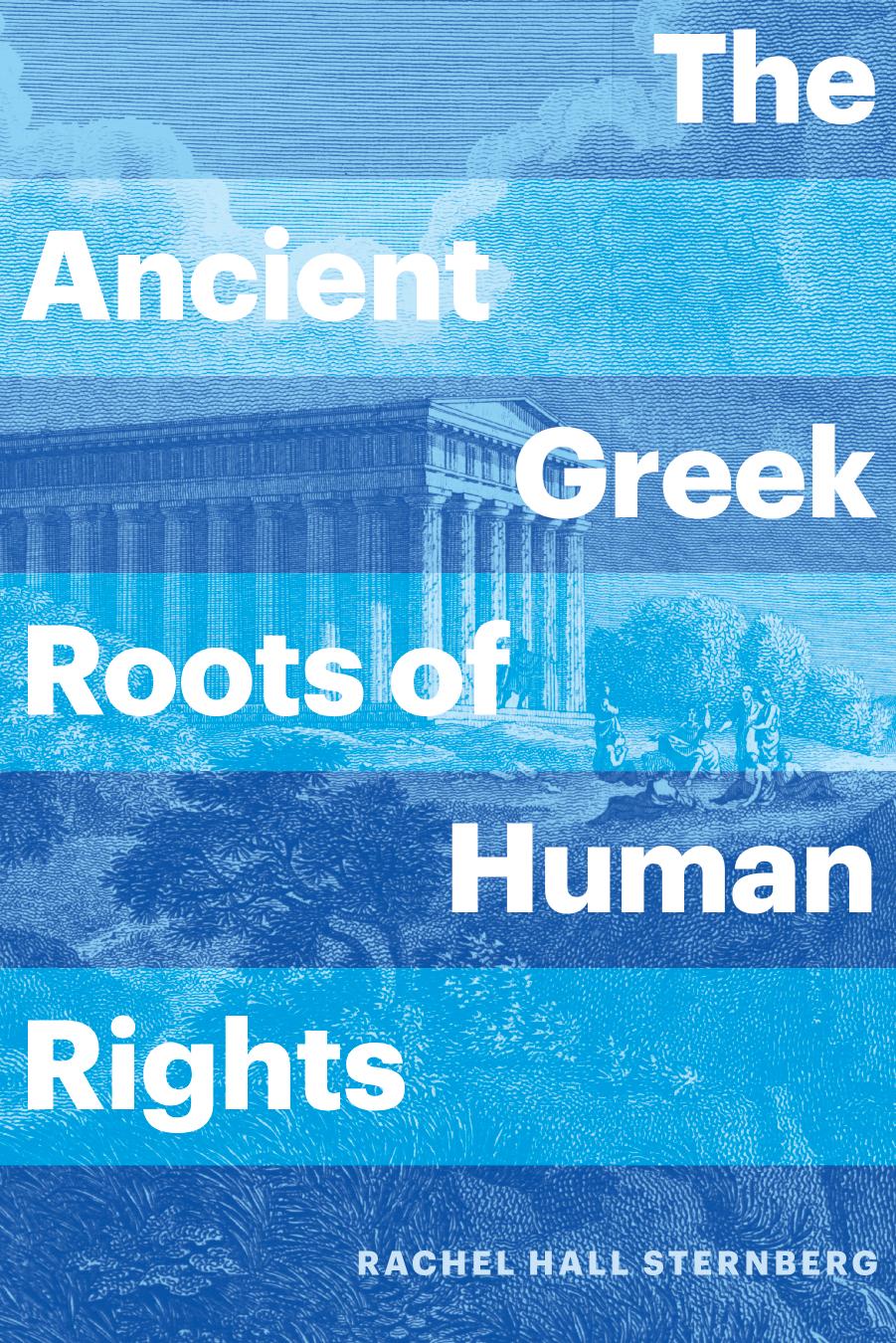The Ancient Greek Roots of Human Rights by Rachel Hall Sternberg

Author:Rachel Hall Sternberg
Language: eng
Format: epub, pdf
Publisher: University of Texas Press
Published: 2021-01-15T00:00:00+00:00
CHAPTER 6
Paths through Time
Just as the Silk Road that connected ancient China with Central Asia and the Mediterranean for millennia was not a single well-worn route or road but rather a network of many intertwining paths, so too the elements of respect and the humane impulses of Europe, of which human-rights law may be considered the crowning achievement, did not traverse history over a single well-worn route but rather traveled along many intertwining paths. In this chapter I point out some of these paths, without attempting a comprehensive map of them, a vast undertaking impossible here.
Fundamentally, any discussion of the connections between Classical Athens and later Europe must depend upon an old, familiar story that amounts to the history of humanism, although I will add a few new twists that highlight the previously neglected golden thread of humanism that I call âhumane discourse.â In the following paragraphs, I sketch that history in a nutshell.
First, the Greeks made human beings the central focus of their visual arts, imaginative literature, and philosophy. They celebrated the beauty of human beings and the marvelous capacity of their intellects. (See Sophoclesâ âOde to Man,â excerpted on pp. 24â25.) Those ideas and values expanded geographically during the Hellenistic period (323â30 BCE) in the wake of Alexander the Greatâs extensive conquests. Hellenistic visual arts and literature displayed a pervasive and deepening interest in the role of emotion in human life. Now there was a new verb for pity, splagkhnizomai, âI feel another personâs suffering in my guts,â based on the noun splagkhna (âinnardsâ).
Second, the bellicose Romans conquered the Greeks and were culturally taken captive by them (âGraecia capta ferum victorem cepit et artis / intulit agresti Latio,â Horace, Epist. 2.1.156â157). But the Romans, when not busy with military conquest, did cultivate humanism and make it grow. Greek literary culture became so fashionable that elite Romans had specialized slaves memorize Greek texts and use them to educate their mastersâ sons.
Christianity emerged from Judaism within a Greco-Roman matrix that featured the scholarly work of Hellenized Jews (on which more below). The Roman empire became Christianized by the fourth century CE.1 Latin was the language of the Roman Catholic Church, so when the western half of the Roman empire disintegrated in the fifth century and âbarbariansâ overran Italy, the Latin language was perpetuated by the Church. (Traditional ecclesiastical vestments, incidentally, resemble the dignified robes of elite Romans.) Latin books got copied and recopied by Roman Catholic monks. Scholasticism, a medieval school of philosophy, thrived on Latin translations of Aristotle, whose idea of natural sociability, for example, inspired Thomas Aquinas (1225â1274 CE). Scholastics made âtheir version of the natural law the basis for a universal moral and political code,â including a wide range of natural rights, âwhich are the direct antecedents of what later came to be described as âhuman rightsââ (Pagden 2013, 65â66).
Meanwhile, other Greek books got copied and recopied by Greek Orthodox monks in the eastern half (the Greek half) of the Roman world, where the empire carried on
Download
The Ancient Greek Roots of Human Rights by Rachel Hall Sternberg.pdf
This site does not store any files on its server. We only index and link to content provided by other sites. Please contact the content providers to delete copyright contents if any and email us, we'll remove relevant links or contents immediately.
The Daily Stoic by Holiday Ryan & Hanselman Stephen(3304)
The Fate of Rome: Climate, Disease, and the End of an Empire (The Princeton History of the Ancient World) by Kyle Harper(3060)
People of the Earth: An Introduction to World Prehistory by Dr. Brian Fagan & Nadia Durrani(2733)
Ancient Worlds by Michael Scott(2682)
Babylon's Ark by Lawrence Anthony(2673)
The Daily Stoic by Ryan Holiday & Stephen Hanselman(2572)
Foreign Devils on the Silk Road: The Search for the Lost Treasures of Central Asia by Peter Hopkirk(2463)
India's Ancient Past by R.S. Sharma(2451)
MOSES THE EGYPTIAN by Jan Assmann(2412)
The Complete Dead Sea Scrolls in English (7th Edition) (Penguin Classics) by Geza Vermes(2277)
The Earth Chronicles Handbook by Zecharia Sitchin(2227)
Lost Technologies of Ancient Egypt by Christopher Dunn(2224)
24 Hours in Ancient Rome by Philip Matyszak(2078)
Alexander the Great by Philip Freeman(2064)
Aztec by Gary Jennings(2023)
The Nine Waves of Creation by Carl Johan Calleman(1916)
Curse Tablets and Binding Spells from the Ancient World by Gager John G.;(1860)
Before Atlantis by Frank Joseph(1849)
Earthmare: The Lost Book of Wars by Cergat(1825)
